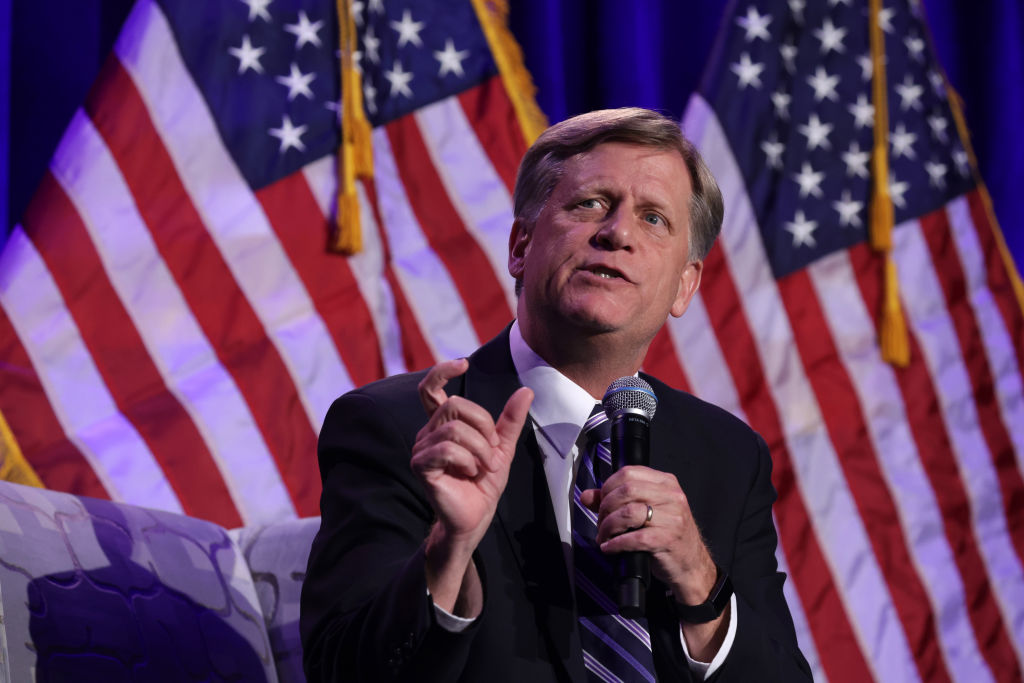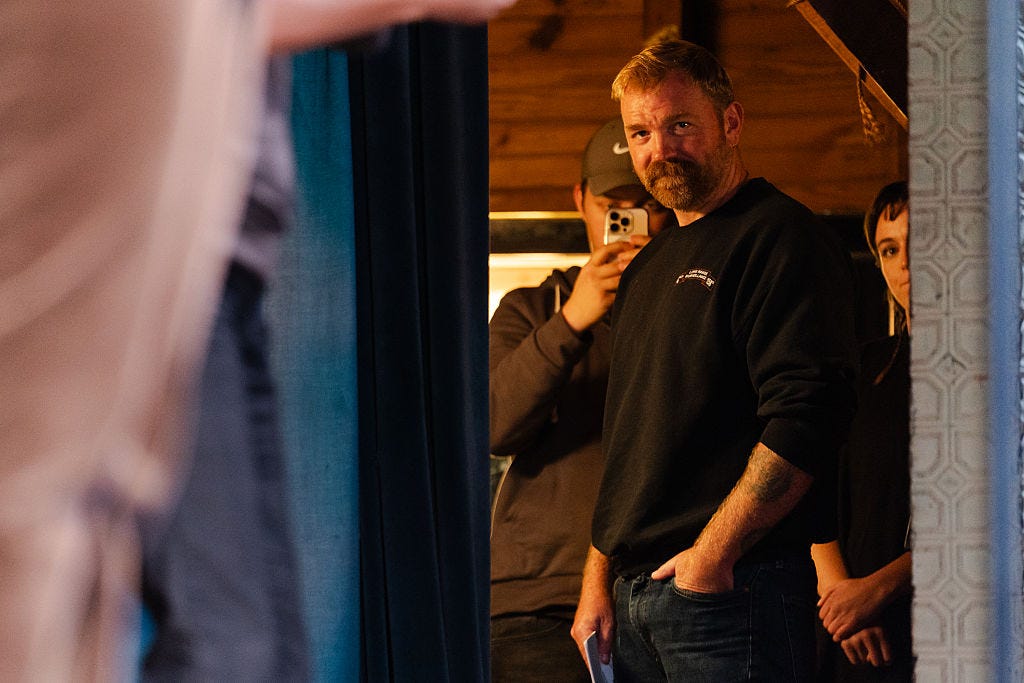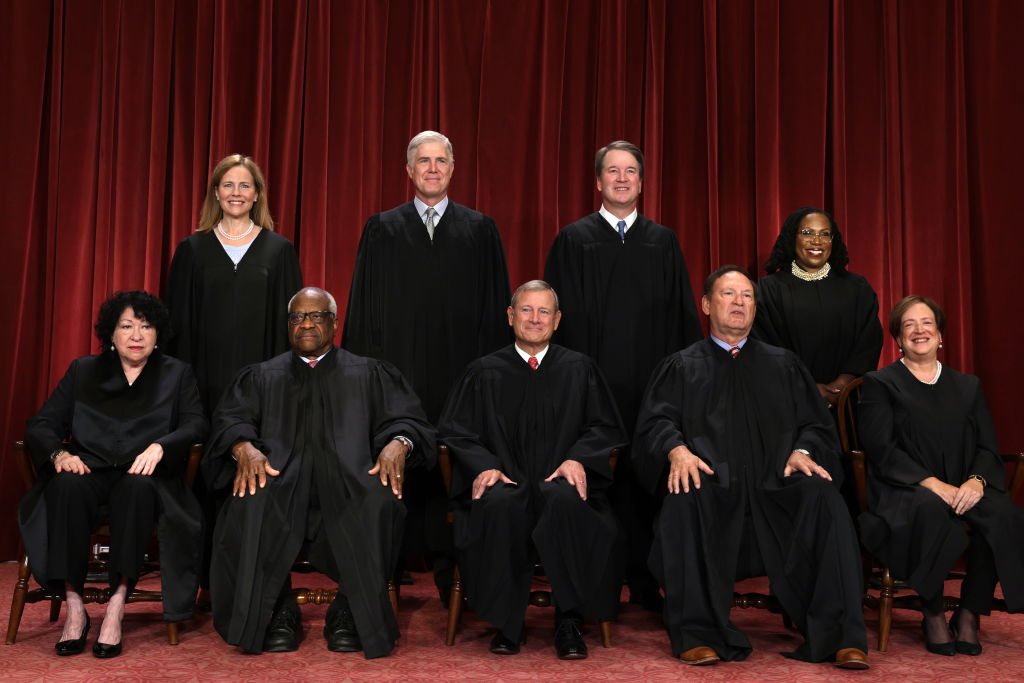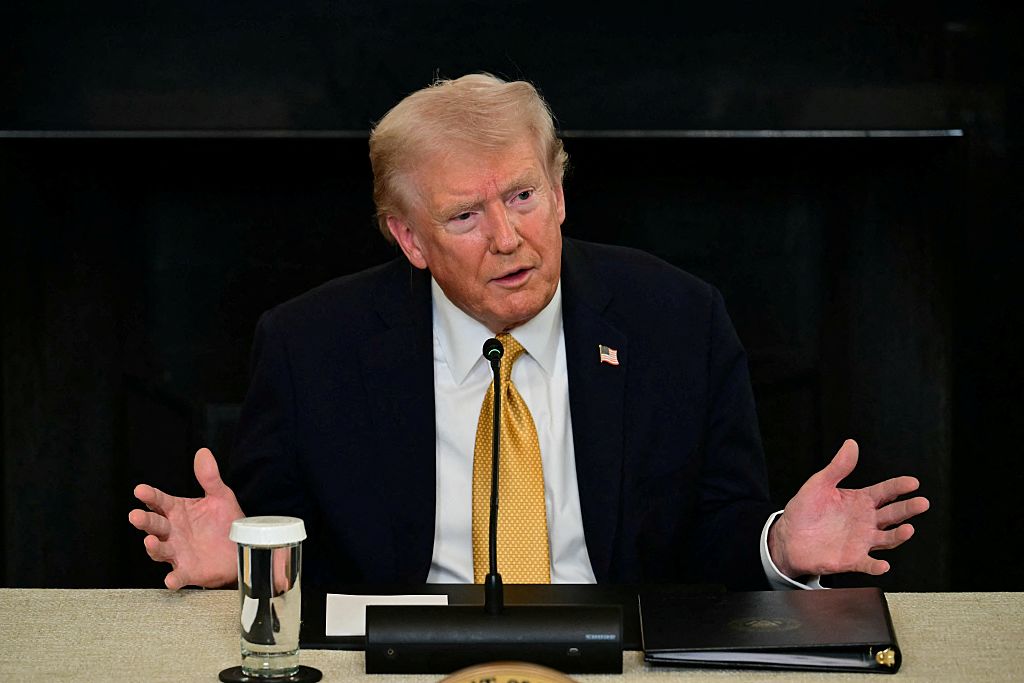The #Resistance goes global
The bands are getting back together. In a piece for the New York Review of Books, Spectator contributing editor Jacob Heilbrunn outlines the way in which war in Ukraine has brought with it the return of a debate between familiar factions in Washington. He quotes an anonymous Trump administration sardonically arguing that with Putin’s invasion of Ukraine, “The good old days are back in DC. Lines are being drawn.”
The Republican establishment has reverted to what I’ve called “normie” Republican foreign policy, largely sticking to an all-purpose charge of weakness against Biden. Meanwhile, the usual dovish voices are making the usual dovish noises. On the right, the big-picture foreign policy debate feels no more resolved today than it did in 2016.
For all that the dynamics might be familiar, however, the debate has been framed in unmistakably contemporary terms. And if foreign policy is primarily driven by domestic considerations, many of the participants in the debate over Ukraine seem to be acting according to the habits they developed during the Trump era.
Nowhere is this clearer than when it comes to the close correlation between the most paranoid flavor of hardcore, Russiagate thinking among centrist anti-Trumpers and a hardline stance on the war in Ukraine.
Consider the case of former ambassador to Russia Michael McFaul. He landed an MSNBC contributor contract after Trump’s election and went on to spend half a decade exciting viewers with grand Trump-Russia conspiracies and delivering overblown warnings about the imminent demise of American democracy. Now he has applied that same alarmism to Ukraine. He spent Friday night on the Rachel Maddow Show explaining why Putin was worse than Hitler. “You know, there’s one difference between Hitler when he was coming in, and Putin. Hitler didn’t kill ethnic Germans. He didn’t kill German-speaking people,” he said. He has since apologized.
Bill Kristol, the neoconservative-turned-Terry McAuliffe voter who perhaps traveled further along the political spectrum than anyone else during the Trump years, now says he will be voting for a “Zelensky Democrat,” whatever that means. Meanwhile, over on The View, anti-Trump Republican pundit Ana Navarro called for a Department of Justice inquiry into the likes of Tucker Carlson and Tulsi Gabbard, both of whom have taken a somewhat sympathetic stance to Russia during the crisis. “They used to arrest people like this,” noted co-host Whoopi Goldberg, seeming to lament that things ain’t what they used to be.
I suspect that Adam Kinzinger’s status as a congressional outlier calling for a no-fly zone is best understood not as a result of long-standing foreign policy beliefs, but as a consequence of his de facto exile from mainstream Republicanism.
For all the ways in which the conversation over how America should respond to war in Ukraine feels like a return to a more conventional foreign policy debate, there are some for whom the fever is yet to break, and whose opinions, whatever the subject, are primarily defined by their opposition to the 45th president of the United States.
*** Sign up to receive the DC Diary in your inbox on weekdays ***
Manchin sinks Raskin
Before the week started, Sarah Bloom Raskin’s confirmation to the Federal Reserve top job overseeing banks was already in trouble. Joe Manchin hadn’t declared his opposition to Raskin, whose support for using financial regulation to accelerate the transition away from oil and gas has come under close scrutiny. But the West Virginia senator had suggested that Democrats drop her from the slate of nominees if it would break the impasse preventing other empty chairs at the Fed from being filled.
Yesterday, however, Manchin went further and declared his outright opposition to Raskin’s conformation. “Her previous public statements have failed to satisfactorily address my concerns about the critical importance of financing an all-of-the-above energy policy to meet our nation’s critical energy needs,” said Manchin. “I have come to the conclusion that I am unable to support her nomination.” That, then, is that for Raskin.
No equity on inflation
Once upon a time, White House chief of staff Ron Klain endorsed the idea that inflation was a “high-class” problem and Jen Psaki waved away concerns about supply chain issues as nothing more than bourgeois frustration that they had to wait a few extra weeks for their Peloton to be delivered.
As was obvious outside the Biden bubble at the time, this was a politically idiotic way to talk about major economic problems — and the administration is paying for it in the polls. Particularly damning is the fact, revealed by a recent poll, of who is hurting the hardest. The survey found that the two groups with the highest proportion of respondents who said inflation was a “major strain on their life” were black women and Hispanic men, both at 44 percent.
These are not just core constituencies for the Democratic Party but the very slice of the population that Biden’s “equity” push is supposed to serve. That didn’t stop the Biden administration dismissing the inflation problem as nothing more than either transitory or a phony Republican talking point. Voters aren’t falling for it.
What you should be reading today
Teresa Mull: Biden must decide the environment’s price tag
Grayson Quay: Searching for a conservative Obama
Christopher Sandford: Stop enabling the crisis junkies
Sudarsan Raghavan, Washington Post: How Kyiv’s outgunned defenders have kept Russian forces from capturing the capital
Ben Goggin, NBC: The internet’s meth underground, hidden in plain sight
Jim Geraghty, National Review: Can Biden say no to Zelensky?
Poll watch
President Biden Job Approval
Approve: 42.8 percent
Disapprove: 51.7 percent
Net approval: -8.9 (RCP Average)
Direction of the country
Right direction: 32 percent
Wrong direction: 62 percent (Rasmussen)

























